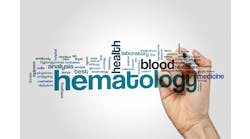VA, National Cancer Institute to Exchange Cancer Registry Data
The Department of Veterans Affairs and the National Institutes of Health’s National Cancer Institute have agreed to share cancer registry information.
NCI and VA will now exchange cancer diagnosis and treatment data, giving VA access to critical data for veteran cancer diagnoses and treatments occurring outside VA’s immediate purview. This will help VA study the impact of cancer on the veteran community — including cancer caused by toxic exposures such as burn pits or Agent Orange — to determine trends and research potential treatments.
“This historic partnership will help VA better understand and treat cancer among veterans — while also helping the National Cancer Institute improve cancer treatment options for all Americans,” said VA’s Under Secretary for Health Shereef Elnahal, M.D., in a statement. “Cancer touches and takes the lives of far too many Americans every year, but — by working together — we are fighting to end cancer as we know it.”
“The strategic exchange and curation of our nation’s cancer registry data will leverage the strengths of both agencies to the gain of every person facing a cancer diagnosis,” said Katrina Goddard, Ph.D., director of the Division of Cancer Control and Population Sciences at NCI, in a statement.
This effort builds on VA and the Biden-Harris Administration’s other recent efforts to care for veterans with cancer. In July, VA expanded cancer risk assessments and mammograms (as clinically appropriate) to veterans under 40, regardless of age, symptoms, family history, or whether they are enrolled in VA healthcare. As a part of President Biden’s Cancer Moonshot, VA has also prioritized claims processing for veterans with cancer — delivering nearly $215 million in PACT Act benefits to Veterans with cancer in the first year of the PACT Act alone.
This exchange will serve a critical role in cancer treatment efforts, allowing VA leadership and others to understand the impact of treatments nationwide. This data will also create new opportunities for the research community to support all patients facing a cancer diagnosis, ultimately reducing cancer’s burden on the nation.


